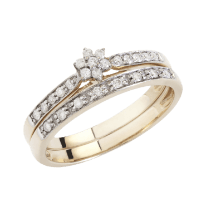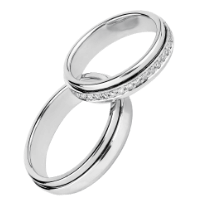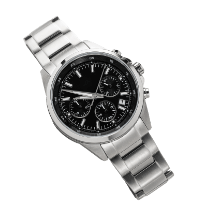Embarking on a journey abroad can be a mesmerising experience. Travellers often accessorise their adventures with their favourite jewellery pieces, enhancing their style and personality. However, these shiny adornments can attract unwanted attention and increase the theft risk. At Centrestone Jewellery Insurance, we believe in proactive protection. Here are some tips on securing your jewellery from potential thefts and robberies when travelling overseas.
Understanding the Risks:
Wearing or carrying valuable jewellery abroad can make you a target for opportunistic thieves. The risks are higher in crowded tourist spots, public transportation, and areas known for pickpocketing. Knowledge and preparedness can be your best allies in ensuring your jewellery’s safety.
Travel Insurance:
Before departing, ensure that you have adequate travel insurance.
What Does Travel Insurance Cover?
Travel insurance focuses primarily on theft and loss, the most common types of claims from travellers. These incidents can be particularly painful and inconvenient while travelling, especially if you don’t understand the local laws and language.
Keep in mind that travel insurance plans may set limits for the amount covered by theft, especially for the following items:
- Cameras
- Electronics
- Jewellery and watches
- Furs
- Sports equipmentLimits for these items vary according to policies. For jewellery, it’s not uncommon to see limits of $700 to $10,000 per item or less.
Will It Be Enough?
For most policies, cover for jewellery is listed under the baggage coverage section.
Travel insurance baggage coverage is designed to provide replacement value for lost, stolen or destroyed items on your trip. As you may have guessed, most travel insurers set limits for how much they’ll cover, especially for expensive items like jewellery and electronics.
In general, baggage is usually covered in the range of $500 to $3,000, depending on your level of coverage. Your plan probably places a per-item limit on contents, however, and this is where people run into trouble with their jewellery and luxury watches.
You may also consider specific jewellery insurance, like Centrestone, which provides comprehensive cover for your precious pieces at home and abroad.
Packing and Transporting Jewellery:
Pack light and only bring the pieces you plan to wear. Transport your jewellery in a sturdy case designed to hold jewellery securely. Never pack your jewellery in checked luggage; keep it in your carry-on bag to prevent loss during transit.
Using a Safe:
Use the hotel safe to store your jewellery when it’s not worn. Don’t leave your jewellery unattended in your hotel room or a bag at the beach or pool.
Limit Display of Wealth:
Although it’s tempting to wear your favourite pieces, limiting what you display in public is safer, especially in unfamiliar territories. You reduce the chances of becoming a target by drawing less attention to yourself.
Safekeeping Original Documents:
Keep a record of all original purchase receipts, appraisals, and photographs of your jewellery. Having these on hand will help identify and evaluate the worth of your items in the event of a theft.
What to Do if Robbed:
Despite all precautions, your safety is the priority if you fall victim to a robbery. Do not resist or chase the thief, which may escalate the situation. Report the incident to the local police immediately and get a written report — your insurer will require this. Notify your travel insurance provider as soon as possible.
Look after your health:
If you’re injured, get medical assistance.
Smart Traveller publishes local emergency contacts in the travel advice for each destination.
It also keeps lists of local hospitals in each destination with doctors who speak English. Contact your nearest embassy or consulate or the 24-hour Consular Emergency Centre on +61 2 6261 3305.
Report it to the Local Police:
Report the crime to the local police. Smart Traveller publishes local emergency numbers in the travel advice for each destination.
Be aware that a local crime is a matter for local authorities. The Australian Government is limited in how and when it can get involved.
Deciding if you’ll report it
It’s up to you to report the robbery, theft, mugging or carjacking.
However, failing to report a crime is illegal in some countries. If so, and local police find out about it, they may arrest you. Before deciding not to report it, check the local law.
Failing to report the crime comes with other risks if you’re the victim of a carjacking.
If the thief uses the car to break other laws (e.g. speeding), the police may think you were driving. They could arrest you for someone else’s crime. Without a police report, you can’t claim car, travel, or jewellery insurance.
Gather evidence:
You’ll need to provide the police with everything you can remember about the incident. As soon as you can, write down the details.
Consider the perpetrator’s physical attributes. This can include assumptions on age, weight, gender and nationality. Also, remember their skin, hair and eye colour.
Remember what they said, also how they said it. Details that may seem small on the surface can help the police investigate.
Think about what you were doing at the time. Also, think about what else is happening around you. What you were doing and where can also impact your travel insurance claim.
Try to remember who else was nearby when it happened. Criminals often work in groups. For example, a person you interacted with may have been the decoy for a pickpocket or bag snatch.
Be careful about accusing someone of theft. Don’t just assume it’s the hotel staff or another guest. If you accuse without proof, local police could arrest you for defamation.
Tracking and Recovery:
Consider using tracking technology, such as GPS trackers or intelligent tags, for high-value items. These can help law enforcement agencies locate and recover stolen jewellery.
Get a police report:
Your insurer may also ask for some of these details and a copy of the police report.
Prevent fraud and identity theft
If someone has taken your passport, phone or bank card, you’re at risk of fraud or identity theft (Australian Federal Police). You must act quickly.
Stolen passport
If someone has stolen your passport:
Contact your nearest Australian embassy or consulate, or
call the 24-hour Consular Emergency Centre in Australia on +61 2 6261 3305.
In some countries, you could also be arrested or jailed for not having your passport on you. Without it, you won’t be able to leave the country to get home.
Stolen phone
If someone has stolen your phone, use the remote wipe feature promptly.
Otherwise, if someone finds your phone and gets past your lock screen, they could access your personal information. This includes saved passwords and banking login details.
Learn more about how to remotely wipe your mobile phone. See what to do if your iPhone or iPad is lost or stolen (Apple) or how to find, lock or erase an Android device (Google).
Stolen credit or debit card
If someone has stolen your debit or credit card, contact your bank to cancel it immediately.
Criminals can use your cards to quickly empty your accounts, and run up a debt to the maximum limit. Most Australian financial institutions have 24-hour emergency numbers you can call from overseas.
Contact your insurer
Travel insurer
Contact your travel insurer. Tell them what happened.
You may wish to claim to:
- replace your stolen property
- repair or replace any damaged items from the incident
- cancel or change your travel plans
- get medical assistance if you’re injured
- exempt the car hire insurance excess if you’ve been carjacked.
- Check the fine print on your policy. Confirm what you can claim. Find out how to claim.
Car insurer, if carjacked
Carjacking is a violent, road-based crime. It’s also a form of robbery.
The car insurance claims process is separate from your travel insurance claim. Most travel insurance policies don’t include car insurance. However, some include car hire excess cover.
Car insurance is usually through the hire company. There may be a very large excess.
Ask the hire company about their car insurance claims process and their excess.
Jewellery insurer
Contact your jewellery insurer. Tell them what happened.
You may wish to claim to:
- replace your stolen property
- repair or replace any damaged items from the incident
- get medical assistance if you’re injured
- get a police report
- Gather evidence that you believe will assist your jewellery insurer in the claim.
Replace your stolen items.
If you need a replacement passport, contact your nearest Australian Embassy or Consulate..
Contact your travel insurer, family or friends if you need cash urgently. The Australian Government can’t give you money.
If you need new credit or debit cards, contact your bank. Most have processes to express post replacement cards to your hotel or a local post office while travelling overseas.
Conclusion:
While jewellery can add sparkle to your travels, it also requires special care to prevent theft or loss. With wise precautions, comprehensive insurance, and a responsive action plan, you can focus on creating unforgettable memories rather than worrying about your treasures.
Centrestone Jewellery Insurance is dedicated to giving travellers the most comprehensive understanding of jewellery insurance solutions. By investing in reliable insurance, you are not just protecting your jewellery — you’re securing peace of mind for your travels.







